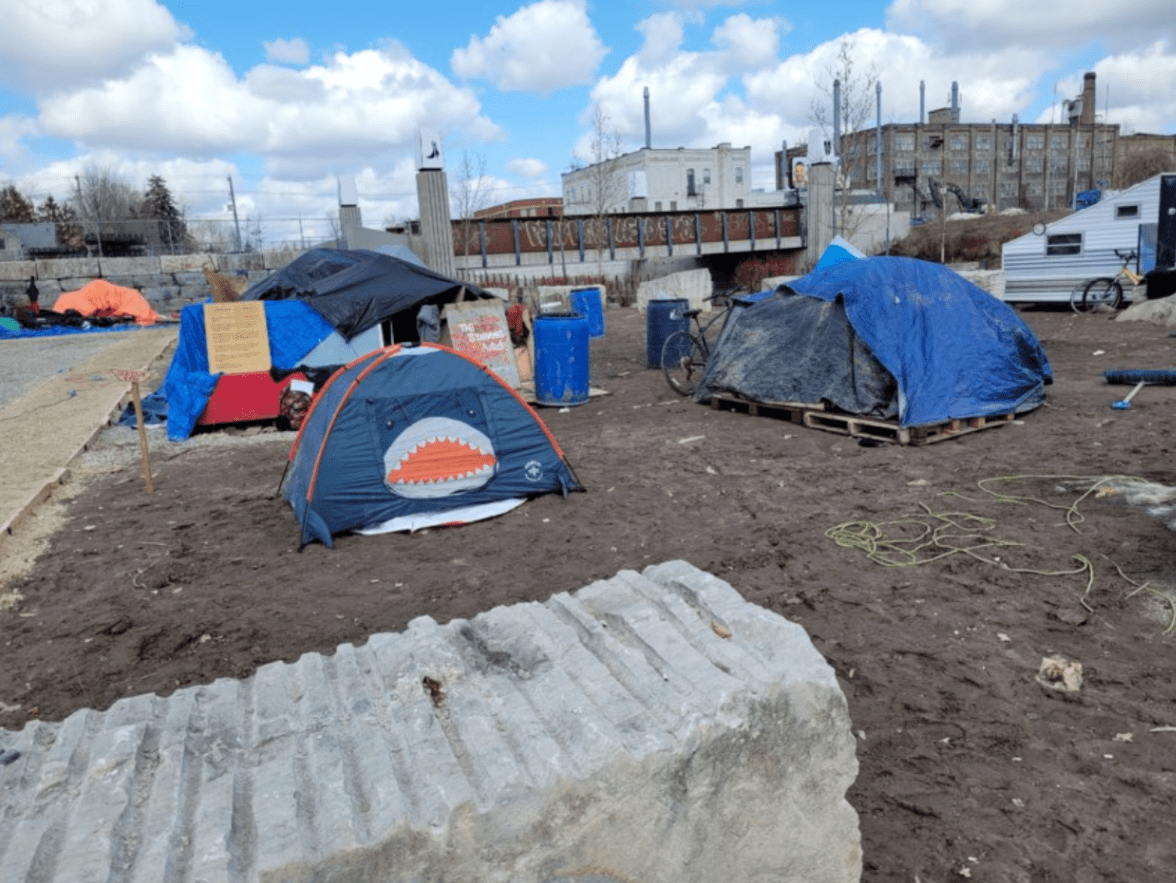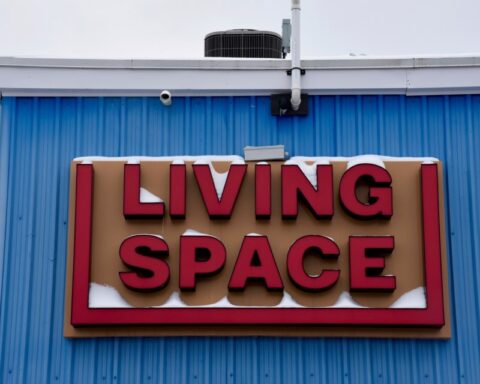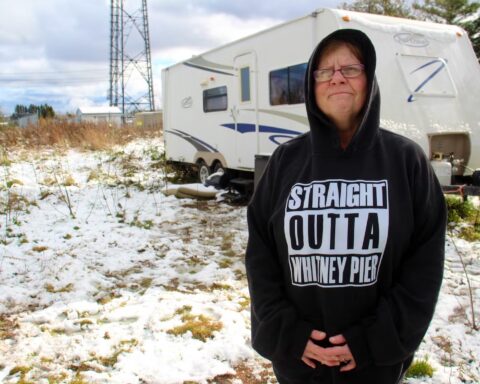The more than $200,000 the Region of Waterloo has spent since September to provide security to encampments on regional property in Kitchener and Cambridge is necessary to keep people safe, explained commissioner of community services, Peter Sweeney, in an interview with Cambridge Today.
Last November James Bennett, the lawyer representing Waterloo region, told CBC that secure encampments cost the region $80,000 a month.
But Sweeney said the actual amount is considerably less, coming in around $30,000 a month, and also providing people living in two encampments with services like portable washrooms, garbage disposal, and privacy.
“The encampments are not safe. We don’t believe that an unsanctioned encampment is a safe alternative,” Sweeney said, adding that when encampments are on lands “that we legally own, we have a legal and moral responsibility to do what we can to make sure everybody is safe.”

He was referring to the encampment at 150 Main St. in Cambridge, which is just a few kilometres from a tent structure that burned down Jan. 24 in a wooded area near Franklin and Champlain boulevards.
Sweeney says the parking lot is “less than ideal” for the 15 people living at 150 Main, but stressed that “it is our responsibility to ensure that we keep as safe as possible the people who are living there and those who live and work there.”
From the council’s point of view, the situation remains “serious,” even though the region is collaborating with The Working Centre to open a new hybrid shelter at 1001 Erbs Rd. in Waterloo next month that will have space for at least 50 people.
The current encampments situation in the region is not getting “any better,” said regional councillor Doug Craig. “I wish we were able to do something quicker.”
After the judge’s decision in favour of residents of the camp at Victoria and Weber streets in Kitchener, Craig said the situation has become a “waiting game.”
“We have a judicial order that does not allow us to go in and move people out. So we can’t do anything about the present serious situation,” Craig said.
Times have changed, said the former Cambridge mayor.

“We didn’t have encampments (before). We may have had a few tents here and there, but not in public places, nothing on the scale of what we have today.”
Craig added that in his last six months as Cambridge mayor, in coordination with different agencies, a task force was established and “we started to put together a plan to deal with the tent problem.”
The council that followed, continued the work of the Community Outreach Task Force with the Community Wellbeing Advisory Committee in 2018.
The committee “provided advice to council and city staff on complex social issues impacting city policies, programs, services and strategies, as well as actionable advice on the development of integrated community programs and strategies to address those issues.”
As the new term of council took office last November, staff recommended council place the committee’s mandate under review and not look to re-establish it until staff have had additional time to explore options for committees of this nature
Craig agreed with Sweeney about the necessity of spending money at the regional level to secure encampments.
“You need to take care of people, spend money on washroom facilities, on keeping rodents and rats out of encampments,” he said. “We are a society that supports vulnerable people. It’s going to cost money and we have to take that task as we go along,” he added.
He also said that the money for security can’t be used for other purposes such as food or different basic needs for people experiencing homelessness because most of them already receive money through programs like Ontario Works or Ontario Disability Support Program.
“Those people in the encampments are getting cheques” as unemployed or with any disability, Craig explained. The basic needs are already being taken care of in other programs, he said.
More support needed
With April 15 as a deadline to open the new hybrid shelter on 1001 Erbs Road, the Community Services commissioner gave assurances that it will be able to house people from the three main encampments in the Region: 150 Main St., Victoria and Weber, and Victoria Park.
The region is dealing with “chronic homelessness, addictions and mental health,” Sweeney said.
“Our hope and goal are actually to eliminate chronic homelessness across the region. I would like a future where we don’t have a need for encampments, we don’t have people who choose to live outside because they have access to the support that they need, but we’re clearly not there yet.”
He recognized that there is a crisis of housing and mental health in the region.
“We also know that there are people who are currently experiencing homelessness that are not living in those encampments who are living in smaller encampments, ones that are hidden, and it’s our responsibility to reach them as well.”
Talking specifically about the 150 Main St. encampment in Cambridge, the commissioner said that his office has caseworkers who are in regular contact with individuals experiencing homelessness there.
“We take that role very seriously and try to do everything we can to ensure that people have access to the resources that they need,” Sweeney said, explaining that “we’re in a situation where there’s not enough supportive and transitional housing and permanent housing in this community.”
Sweeney added that while the new shelter is an improvement, “it’s not going to solve the problem” because there is a need for “supportive, transitional and permanent housing” as well to address mental health and addiction issues.
“This is not a problem that one level of government and municipal government is going to solve on its own. We need the support of our provincial or federal governments,” he said.
Councillor Craig completed the idea by saying that “everybody focuses on us and we’re the level of government least equipped to be able to do anything. We don’t get enough support from the provincial and federal governments for the money we need to house people properly.”
In his opinion, the regional government of Waterloo has done “a very good job” in trying to help solve these problems with “very limited resources.”
He emphasized that the provincial and federal governments “have got to step in, in a major way” to enable people to stay in apartments.
___________________________________
This article was originally published on CambridgeToday.ca
Isabel Inclan has worked as a journalist for more than 20 years, in both Mexico and Canada. She began working as a foreign correspondent in Canada in 1999 for Mexican media. She has been a New Canadian Media contributor since 2018. Her main areas of interest are politics, migration, women, community, and cultural issues. In 2015, Isabel was honoured as one of the “10 most influential Hispanic Canadians.” She is a graduate of Masters in Communication and Culture at TMU-York University. She is a member of CAJ and a member of the BEMC´s Advisory Committee.





